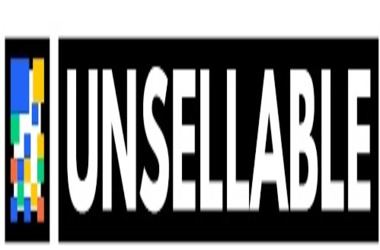
Christie’s auctioned a digital composition NFT by the artist Beeple for roughly $70 million (£58 million) in March 2021. In January, Justin Bieber spent $1.29 million (£1 million) for the “Bored Ape” NFT, a graphic depicting a bored ape. From Michael Jordan to former first lady Melania Trump, everybody took part in the activity.
Along with the larger cryptocurrency market, the demand for NFTs has waned to the point that a specialist market has emerged for collectors seeking to offer their once-valuable “digital collectibles” as capital losses to mitigate their income tax obligations.
Unsellable, a freshly introduced business, attempts to assist collectors in doing just that. Consider it a distressed asset auction. The service’s website states, “While every asset class has its failures, a large number of NFTs in which we invested were now completely valueless, illiquid, and unsellable.”
Unsellable, which claims to be “creating the world’s greatest collection of worthless NFTs,” purchases the underlying tokens for a fraction of their original cost and offers a tax receipt. The business then compiles the NFTs into “The Unsellable Collection,” which presently consists of 1,600 digital treasures, in an effort to create the “ultimate relic of the early days of Web3.”
It is understandable why purchasers would be eager to liquidate for a percentage of their initial investment. The need for digital certificates of possession underlying non-fiat currencies has vanished. Between January and March of 2022, almost $19bn (£16bn) was expended on NFTs. Ever since, blockchain monitoring company Chainalysis reports that monthly expenditure has decreased by 87%.
In November, only $442 million (£368 million) was expended, and the count of active NFT traders has dropped roughly two-thirds from the high a year earlier. As reported by the market tracker at Nonfungible.com, 144,000 NFTs were traded for $142 million (£118 million) on January 16, 2022. This Wednesday, 17,000 items were sold for $28,000 (£23,294).
The most frequently traded series of NFTs consists of photographs from the Bored Ape Yacht Club (BAYC), which Bieber purchased. Every Bored Ape picture is a strange blend of 170 potential characteristics, such as facial expression, headgear, attire, and more. The firm states, “All apes are cool, but a few are pricier than some others.”
Bored Ape’s developer, Yuga Labs, was recently faced with a class-action lawsuit alleging that it exaggerated the worth of its intangible products. Celebrities and previous NFT preachers, notably Justin Bieber, Paris Hilton, Madonna, Jimmy Fallon, and Kevin Hart, were listed as co-defendants in the complaint.
The petition, which was lodged on 8 December in a California district court, claimed that the advertising effort of the defendants generated several billion dollars in sales and re-sales.
“The flat – rolled celebrity endorsements and misrepresentative advertisements related to the roll out of an a whole BAYC environment (called as Otherside metaverse) were willingly resorted to artificially boost the involvement in and price of BAYC NFTs during the period in question, allowing investors to buy these failing investments at exorbitant prices.”
The NFT market has made significant progress since October 2021, when Mike Winkelmann, the digital artisan referred to as Beeple, marketed his artwork to Christie’s and became “one of the three most expensive living artists.”
A week before, Winkelmann stayed optimistic about the internet’s role in the creation of art, although he admitted: “The market is a little crappy currently,” he opined to Bloomberg. “Do I believe it will return to the spot it was? I do not know… I believe it will continue to rise from here on out.”
A past celeb and U.S. president concurs. Donald Trump introduced a line of digital artefacts picturing himself as an astronaut, a cowboy, and a superman earlier in December. It sold out in just under 24 hours.